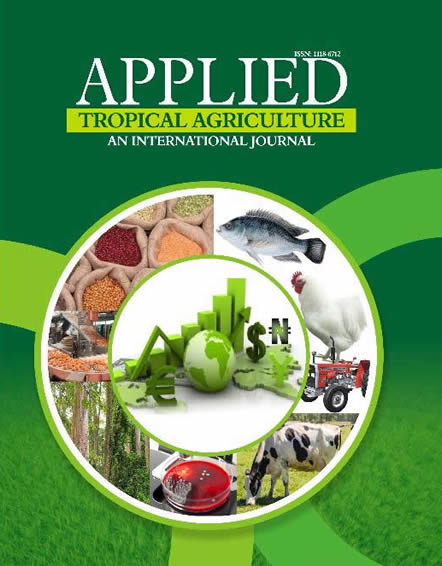Root-knot nematode,Meloidogyne incognita is one of the diseases causing debilitating effects in yam. It is responsible for the dry rot in many varieties of yam where it causes substantial yield loss. Therefore, a screenhouse and field experimentwas conducted during the 2014 and 2015 cropping season to determine the pathogenicity of root-knot nematode on five different yam cultivars at the Kabba College of Agriculture, Kogi State, Nigeria. Three organic material as treatments (powders of Jatropha curcas, Ocimum gratissimum, Chromolaena odorata) and the control were factorially combined with the five yam varieties (Okunmodo, Kerege and Sebukere as (white yam), Ewura (Water yam) and Olo (Yellow yam)) and inoculation regimes of Meloidogyne incognita. The results from the study revealed that the plant parasitic nematode caused stunted growth, galling of root and tuber and chlorosis on the leaves of white yam, water yam and yellow yam. White yam was susceptible to M. incognita while water yam and yellow yam cultivars proved to be fairly resistant to M. incognita. It was further observed that the Meloidogyne incognita in the screenhouse and field experiments significantly affected yam growth and yield.All the botanicals; powdered leaf of Jatropha curcas, Ocimum gratissimum and Chromolaena odorata had significant bio- pesticidal effects on M. Incognita.They caused reduction in the population of M. incognitaboth in the screenhouse and field.Based on the findings from this study, it is therefore advised that yam growers should not plant white yam cultivars on land that are endemic to M. incognita.
Keywords:Nematode, yield, botanicals, yam, Meloidogyne incognita


